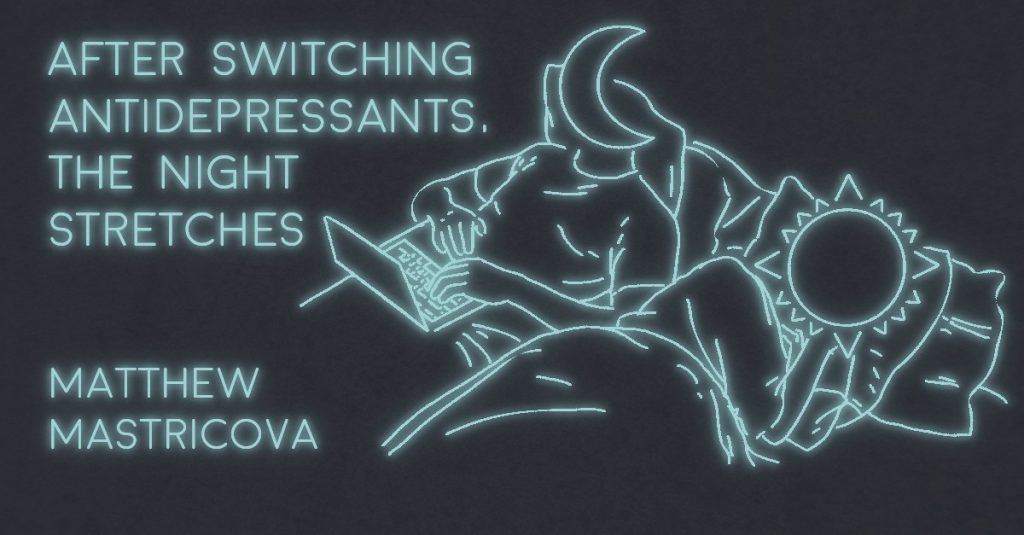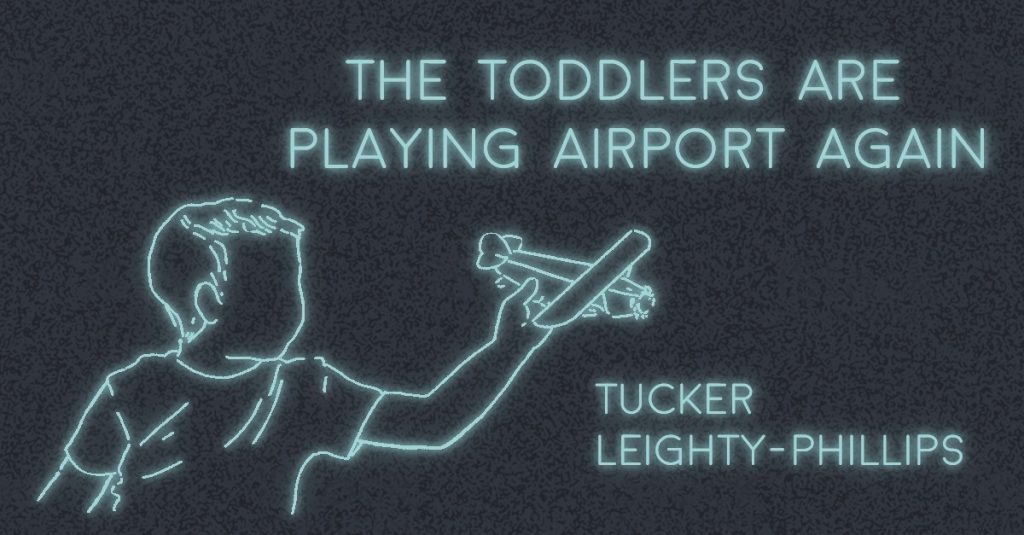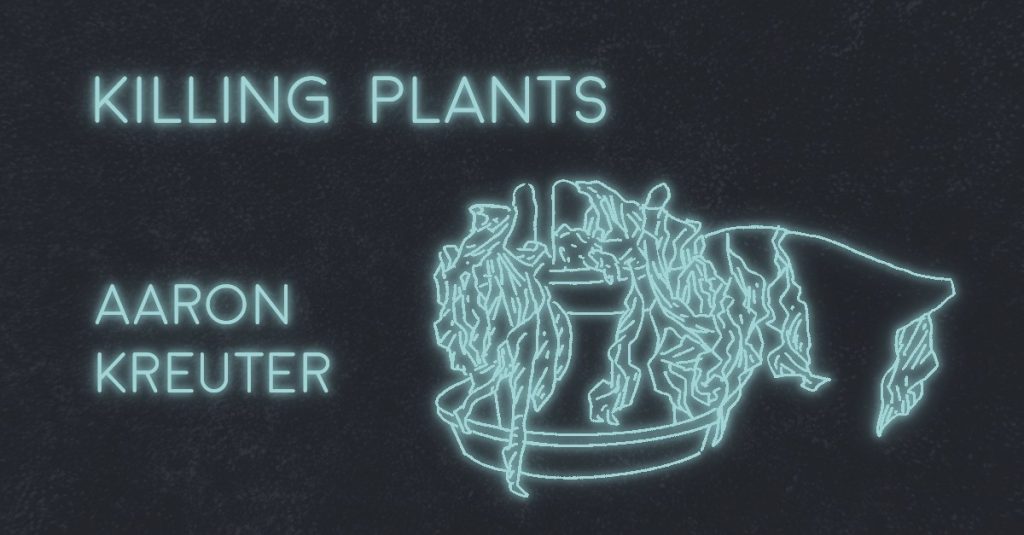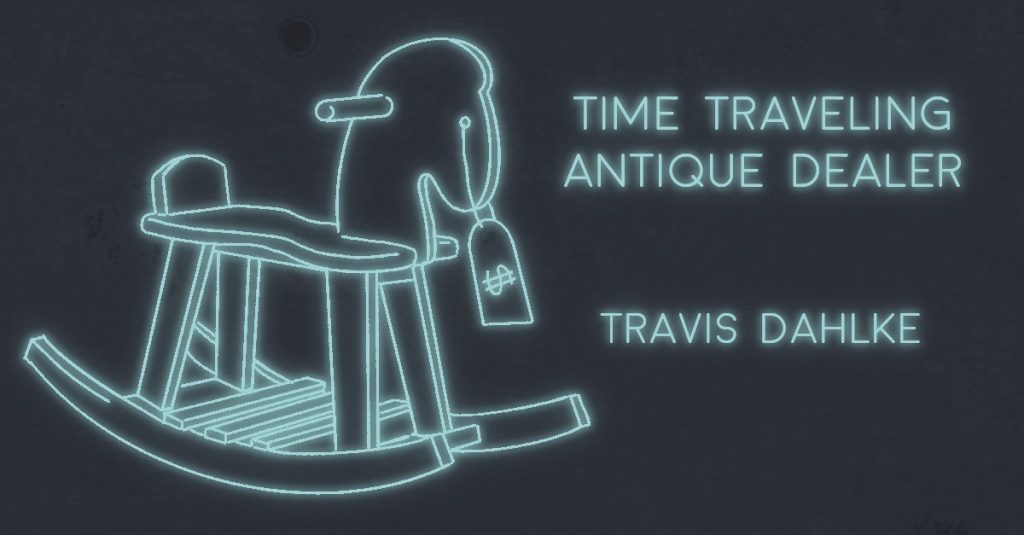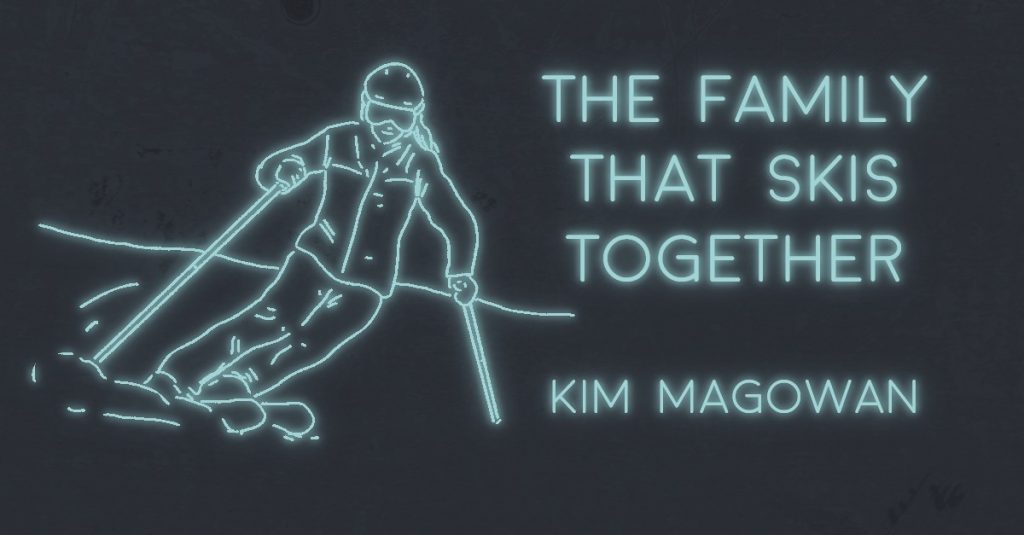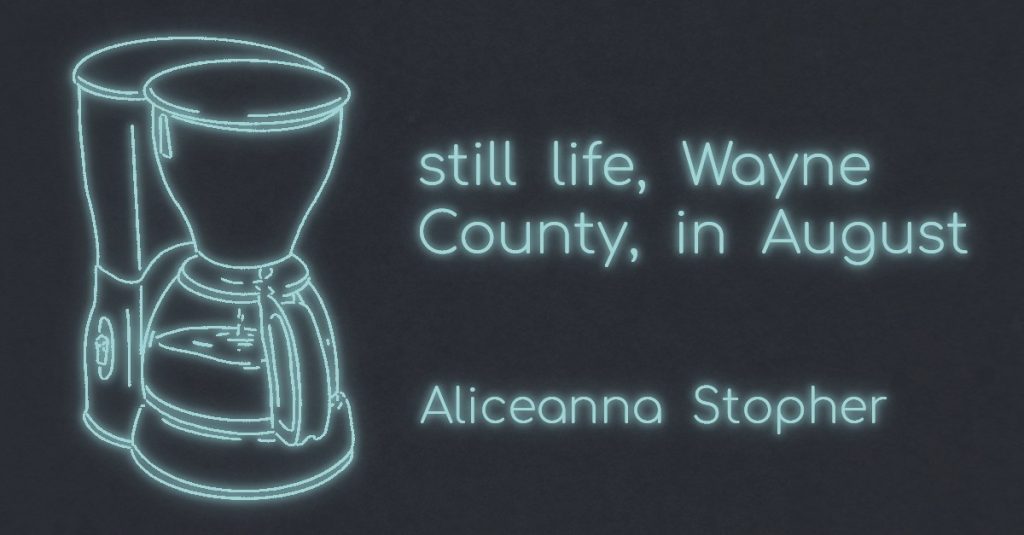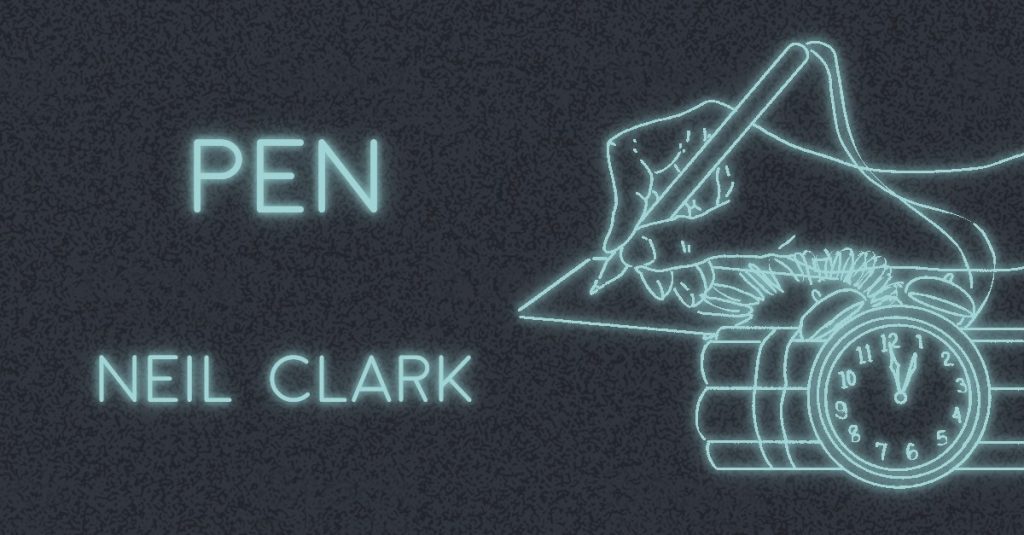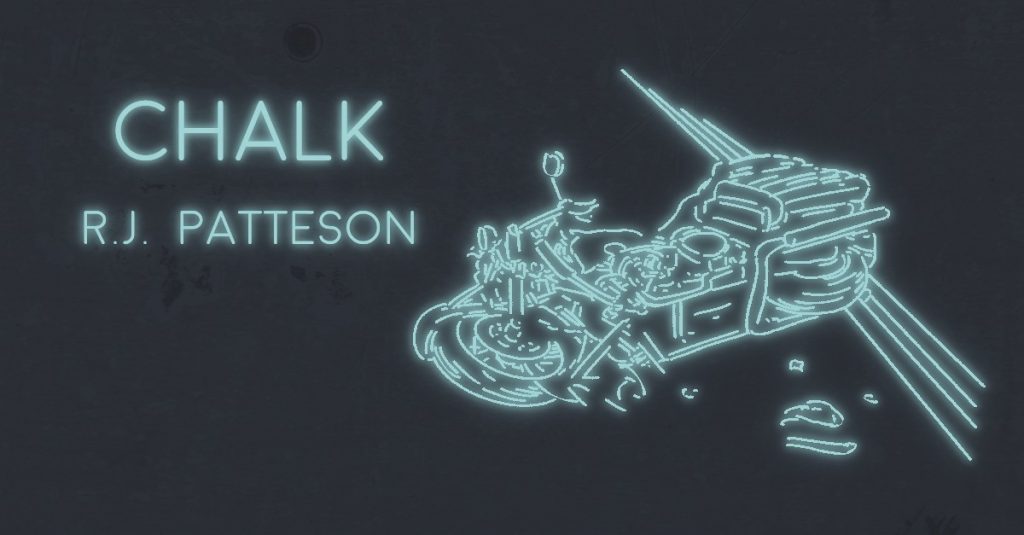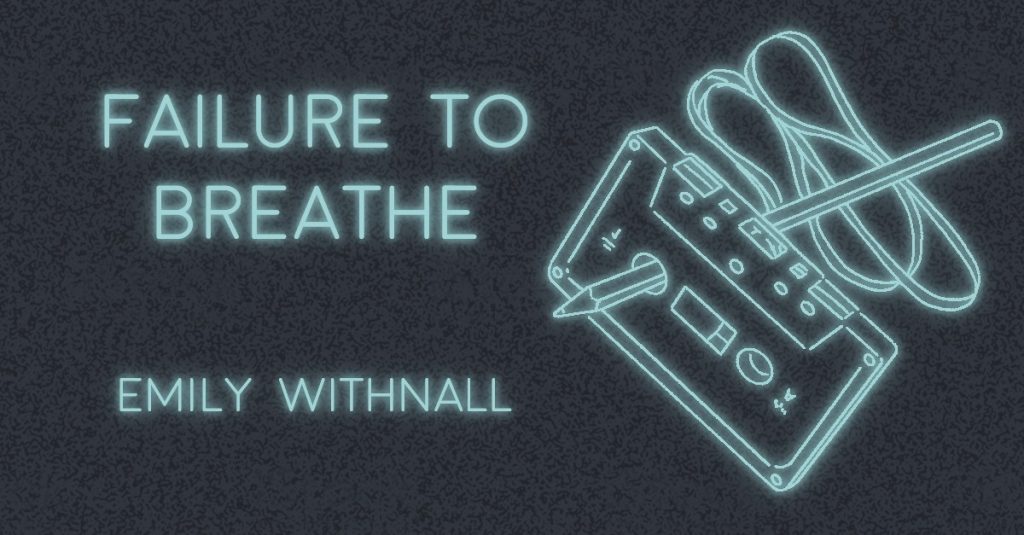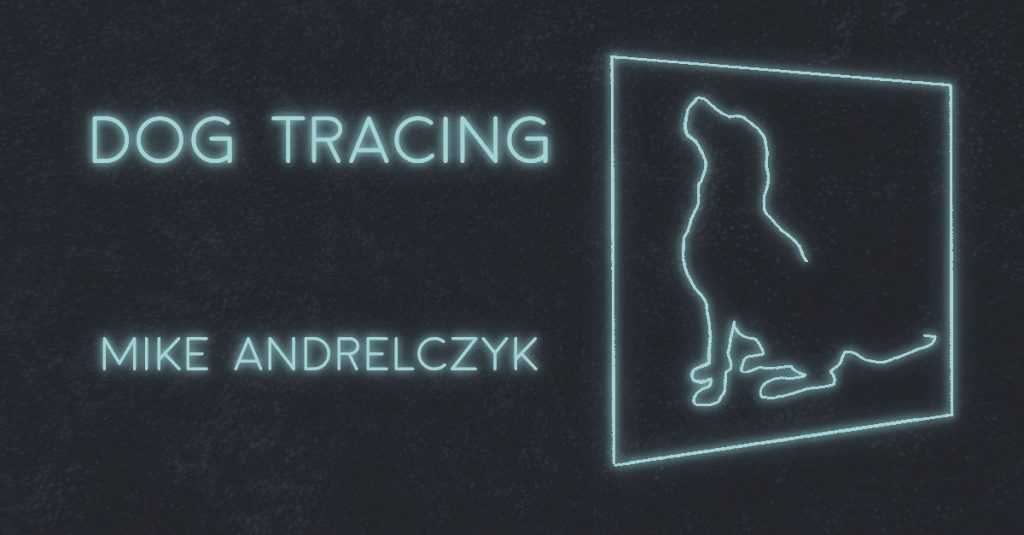
DOG TRACING by Mike Andrelczyk
I just remembered a maintenance man I used to work with who said he liked to get drunk and trace his dog on big sheets of paper and his garden was lined with pieces of broken hotel sinks. I just remembered this. Out of nowhere. When things come into your mind from out of nowhere it’s like looking at the outline of a dog on a piece of paper. The dog is gone, but its shape is there. This is a memory.
Imagine one of those shitty video dissolving effects now.
….
….
…. OK.
I was standing in the sun outside of the parking garage. There was a square of sunlight on the ground and I was standing in the center of it. I was avoiding doing any work for a few minutes and I was standing in the center of a square of sunlight. This was a good thing to do while avoiding loading luggage onto bellman carts and wheeling it around the hotel and unloading it.
Javier came out of the parking garage with a box of empties. The sunlight hit the bottles and it looked like Javier was carrying a box of light to the dumpster. This was good too. Throwing light into the dumpster.
“I’ll get it dude,” I said and lifted up the lid to the dumpster. “Dump ’em baby.”
Javier smiled. “I’m doing these bottles one at a time.”
He took out an empty bottle of Barcardi rum and threw it into the mouth of the dumpster. There was a great smashing sound. The great smash. The sound was like the sun smashing to pieces.
Javier selected another bottle from the box. A green bottle. He handed it to me. Like a suave gentleman extending an offer of a cigarette. Would you care for a smash, my friend?
I accepted. “Smashing,” I said in an English accent. I looped the bottle end over end and it shattered at the bottom of the empty dumpster. Terrific. Success.
Javier smiled at me. Success. Javier didn’t talk much. He was from Brazil. He had distant family that still lived in the jungle he told me once. He seemed to have a lot of girlfriends too.
“Hey, what the fuck are y’all doin!?” It was Jesse. The maintenance man. Maintaining. He was yelling at us in a pretend way like we were suddenly caught mid-smash and in big trouble. Jesse seemed to always appear out of nowhere. Especially when I was throwing stuff in the dumpster. He was like a fly. Attracted to trash and refuse.
“Jesse, what the fuck. You’re interrupting a perfectly good smashing session,” I said.
Javier the Gentleman simply extended an empty Grey Goose bottle to Jesse. A peace offering. An invitation to share in the destruction.
Jesse inspected the bottle. He really looked at it lovingly. The man simply loved trash.
“Jesse, throw the bottle in the dumpster dude,” I said. “Have a nice smash man. Take a smash break. Be a smash bro.” (I am an idiot.)
“I ain’t ‘bout to. Ima take this home,” he said.
We were obviously stupid rubes for smashing perfectly good liquor bottles. Jesse knew the secret. Never throw anything away. Don’t abandon your trash. It’s only trash if you let it be trash. Never refuse. He told me once that he would take the broken porcelain sinks and toilets home from the hotel and smash them up until he had pebble-sized pieces and he would use those for his Russian wife’s Japanese-style zen rock garden.
He was the maintenance man. He knew all the secrets of the hotel. The ins as well as the outs. He was maintaining the order of things.
I said the last thing out loud. About maintaining the order.
“Huh?” Jesse looked at me cockeyed. “See, what I like to do is buy some Jacquin’s then I fill up these bottles and there ya go. Ya got Grey Goose. Don’t nobody know the difference.”
I laughed. “What? Damn Jesse, you’re a genius.”
He smiled. Because he knew he was a genius.
“Sheet,” he said. “See what I like to do is have a few drinks then I get my dog on the floor.”
In the few seconds before Jesse continued my mind was filled with horrific visions of drunken bestiality. Then Jesse hit us with the tenderness.
“I got her trained so she just lay on these sheets of paper. And then I trace her. I make silhouettes and then I decorate my walls with all the pictures of my dogs. Been doing it for years. First was Delly. She was a good girl. Then was New Delly. Then Dolly. Now Jasmine. All labs. They’re my sweethearts and I love ’em,” Jesse paused. A moment of silence for his dogs. “Thanks for the bottle motherfucker.” He punched Javier in the ribs, but not hard. Javier only smiled.
Jesse walked off. Cradling his bottle like a baby. A baby bottle. A jewel. He moved towards the elevator shaft and disappeared into the stairwell. A silhouette is the shape of a ghost.
Some silence occurred then. Not much, but a little. Enough for it to be called a silence.
Javier looked at me.
“He draw his dogs?”
“Haha. Shit. He traces ’em. Outlines.” I mimed outlining a dog on the ground. I made the shape of a dog. I briefly imagined like that would be all you had to do to make a dog – just make the shape of a dog and it existed. In a way it was true.
Javier smiled. “Traces dogs,” he said. “Jesse.” But the way he said it sounded like Yessy.
Javier handed me another empty bottle. I smashed it. The bottle became hundreds of tiny pebbled-sized pieces. An empty bottle is just a future zen garden.
We finished the smashing. I still had more than an hour to go. This was a shitty shift. Not much action. I’d be lucky to make three dollars in tips.
$$$
I got lucky and carried some bags for a rich asshole guy and his girlfriend. Some rich people were truly cheap. But this guy wanted to show off and he gave me $10. It may have been accidental. He pulled out the bill and we both looked at it and then he handed it to me.
$$$
I stopped at the Food Lion on my way home. I always thought “Food Dog” in my mind because once I drove Javier home and he pointed to the sign and asked if I minded stopping at the Food Dog. The lion on the sign looked like a dog I guess. I mean it was basically like the shape of a dog pretty much. I bought some fried chicken for grandma.
Then I stopped at R&R and bought a fifth of Grey Goose.
I took a small drink as I drove home. The window down. The warm evening air rushing through. I heard a dog barking in the distance. The air made the shape of the dog’s barks. The sound of the dog barking became part of the air. A dog in the sky. Yes, I thought, a dog in the sky.
I decided I would take the bottle to the beach that night and drink it in the dark. I would drink from the bottle until it was empty and I could see in the dark.

